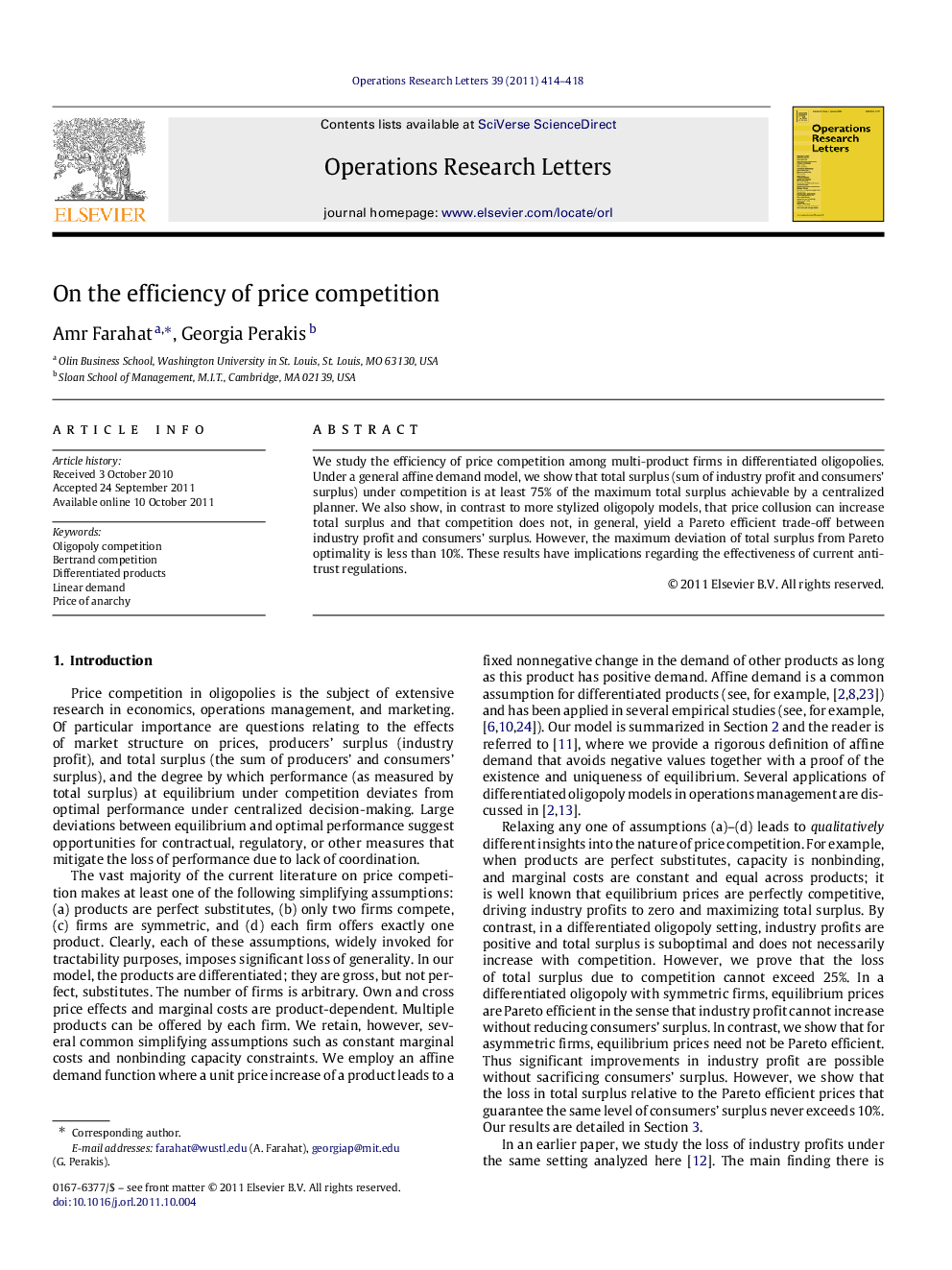| Article ID | Journal | Published Year | Pages | File Type |
|---|---|---|---|---|
| 1143246 | Operations Research Letters | 2011 | 5 Pages |
Abstract
We study the efficiency of price competition among multi-product firms in differentiated oligopolies. Under a general affine demand model, we show that total surplus (sum of industry profit and consumers’ surplus) under competition is at least 75% of the maximum total surplus achievable by a centralized planner. We also show, in contrast to more stylized oligopoly models, that price collusion can increase total surplus and that competition does not, in general, yield a Pareto efficient trade-off between industry profit and consumers’ surplus. However, the maximum deviation of total surplus from Pareto optimality is less than 10%. These results have implications regarding the effectiveness of current anti-trust regulations.
Related Topics
Physical Sciences and Engineering
Mathematics
Discrete Mathematics and Combinatorics
Authors
Amr Farahat, Georgia Perakis,
